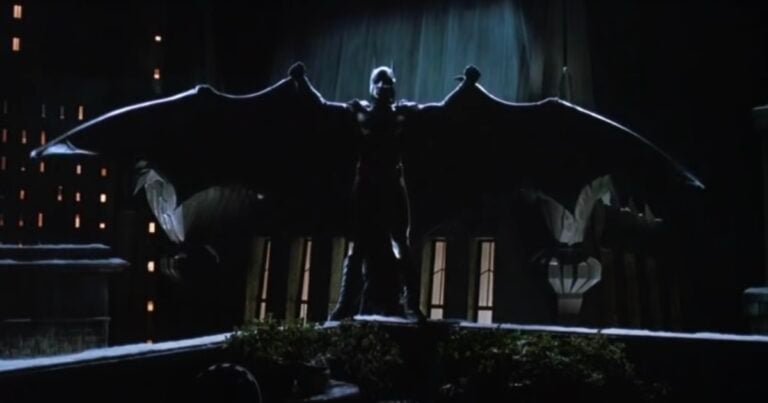In a new interview, Tim Burton had a short, sweet answer to Warner Bros’ response to Batman Returns: “Go fuck yourself.”
While Tim Burton’s Batman and Batman Returns remain a classic, the director’s decisions to portray the world’s greatest detective in his customary dark tones and storylines didn’t apparently sit well with the audience, or even Warner Bros.
After Batman Returns, the studio hired Joel Schumacher to direct Batman Forever and Batman & Robin. Schumacher’s Batman was a stark departure from Burton’s latex-clad movie – more ‘kids’ cartoon’ and less grouchy Bat.
30 years later, Burton had some choice words for their decision in a new interview with Empire.
“[Back then] they went the other way. That’s the funny thing about it. But then I was like, ‘Wait a minute. Okay. Hold on a second here. You complain about me, I’m too weird, I’m too dark, and then you put nipples on the costume? Go fuck yourself.’ Seriously. So yeah, I think that’s why I didn’t end up [doing a third film]…” he told Empire.
Consequently, Burton also thinks that the Warner Bros return to a darker character – particularly for Batman – is amusing, given that they actively tried to dissociate from that very image in the past.
“It is funny to see this now, because all these memories come back of, ‘It’s too dark’. So, it makes me laugh a little bit.” he told the magazine.
Love Film & TV?
Get the latest Film & TV news, features, updates and giveaways straight to your inbox Learn more
While he admitted that he hadn’t seen the recent Matt Reeves venture, he did specify that going dark just for the sake of it never really works – something he actively takes care of.
“I’m not just overly dark. That represents me in the sense that… that’s how I see things. It’s not meant as pure darkness. There’s a mixture. I feel really fondly about it because of the weird experiment that it felt like.” he said.
For more on this topic, follow the Film & TV Observer.
Check out the trailer for The Batman by Matt Reeves:

































